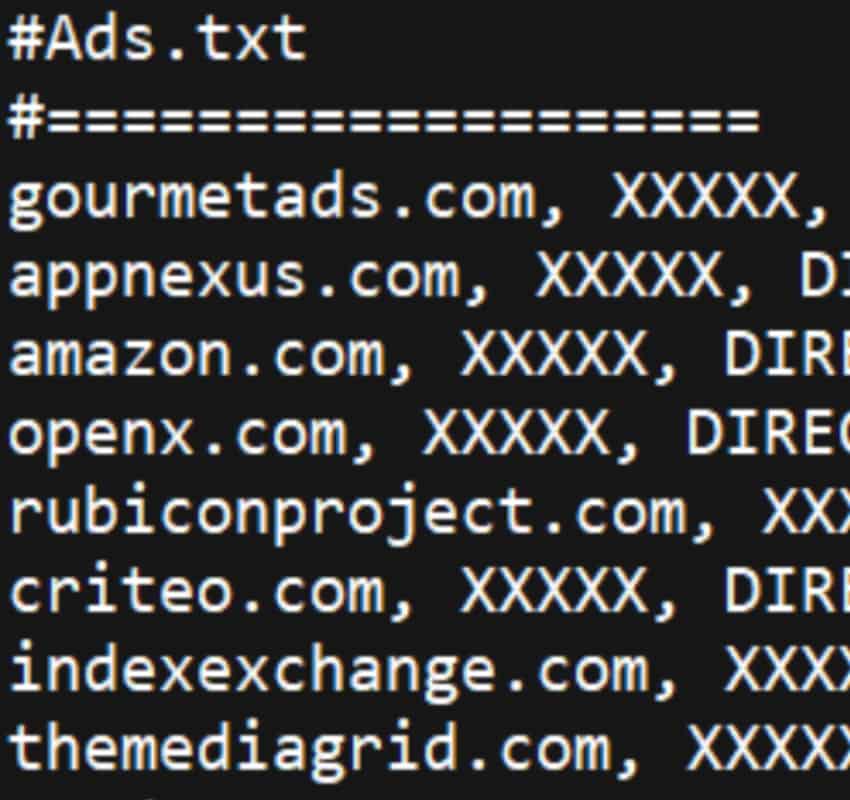What is ads.txt ?
What is ads.txt?
Ads.txt stands for “Authorized Digital Sellers.” It is a simple but critical initiative designed to provide transparency and prevent fraud in the Programmatic Advertising ecosystem. Created by the Interactive Advertising Bureau (IAB), ads.txt aims to build a directory of authorized online sellers to secure the integrity of the digital advertising supply chain. By placing a straightforward text file on their web servers, publishers can list the companies authorized to sell their digital inventory, thereby reducing the risk of counterfeit and fraudulent transactions.
The Mechanism of Ads.txt in Programmatic Advertising
In Programmatic Advertising, buyers can refer to a publisher’s ads.txt file to validate the legitimacy of the ad inventory they are considering purchasing. The text file functions like a digital ledger, enabling bidders to cross-verify the credentials of the seller against the directory. For example, if you’re looking to buy inventory from a specific site, you can check the site’s ads.txt file to ascertain whether the seller is genuinely authorized to sell that inventory.
Types of Supplier Relationships Supported by Ads.txt
Ads.txt is versatile and can cater to various types of supplier relationships within the Programmatic Advertising world. These include publishers who sell their inventory through their own accounts on ad exchanges, networks who sell inventory on behalf of publishers, and complex partnerships involving multiple sellers for the same inventory. This multi-faceted approach amplifies the effectiveness of ads.txt as a standard in Programmatic Advertising.
Adoption Rates and DSP Integration
Currently, ads.txt enjoys broad acceptance among major publishers. Many Demand Side Platforms (DSPs) now include ads.txt as a targeting option to help verify if a given platform holds the necessary permissions to sell a publisher’s ads. This mass adoption highlights the industry’s push towards greater transparency and accountability.
Challenges and Limitations
While ads.txt is a formidable tool for ensuring transparency and reducing fraud, it’s not without limitations. The system relies on publishers to update their ads.txt files consistently, which doesn’t always happen. Also, while ads.txt can indicate authorized sellers, it does not provide insights into the quality of the inventory, leaving some room for issues like ad fraud or viewability to persist.
« Back to Programmatic Glossary Index
Food Targeting Categories
Since 2008, Gourmet Ads has been the global leader in food-focused advertising, specializing in Contextual Targeting. Discover a wide range of Food Targeting Categories for your next advertising campaign or programmatic deals, including Alcohol, Beverage, Cuisine, Diet, Ingredient, Kitchen Appliances, Non-Endemic, Publisher, and Recipe Targeting. We ensure your brand resonates with an engaged, culinary-inclined audience, transforming advertising campaigns into deliciously successful endeavors. Experience Gourmet Ads—where your message meets the appetite of your desired market.
Let’s Get Started !
Let the Gourmet Ads team walk you through all the options available to ensure that your Food, Supermarket, Beverage or Kitchen advertising campaign has the best possible combination of Premium Guaranteed Inventory, Scale, First Party Data, Contextual Targeting and Programmatic Advertising elements.















